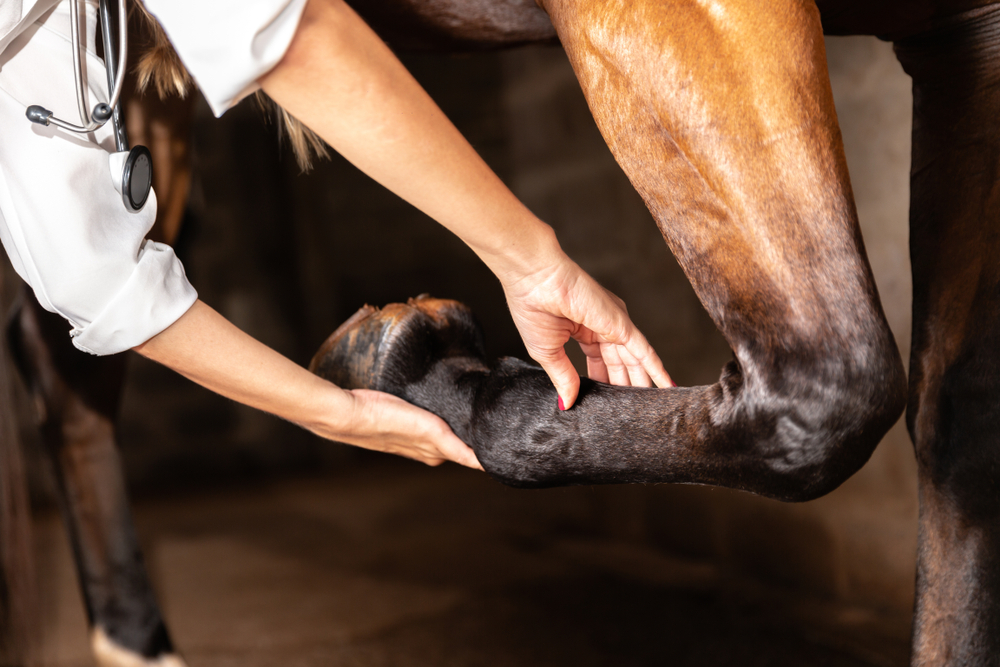When your horse faces a medical crisis, every second counts. South Valley Equine provides comprehensive emergency veterinary care 24 hours a day, 365 days a year. Our experienced veterinarians and support staff stand ready to deliver immediate, life-saving treatment when your horse needs it most. We understand that emergencies are stressful for both horses and their owners, which is why we combine rapid response with compassionate care.
Emergency Services

Understanding Emergency Services
Emergency veterinary services encompass immediate medical intervention for horses experiencing life-threatening conditions or severe injuries. These services require specialized equipment, expert knowledge, and the ability to make critical decisions quickly. Unlike routine veterinary care, emergency services focus on stabilizing patients, managing pain, and preventing further complications while determining the best course of treatment.

Benefits of Emergency Services
Round-the-Clock Availability When Crisis Strikes
Time-sensitive conditions like colic or severe wounds require immediate attention. Our on-call veterinarians respond immediately to emergency calls, providing guidance over the phone and preparing for your arrival. This constant availability can mean the difference between a full recovery and permanent complications.
Dedicated Isolation Areas for Infectious Disease Management
Emergency services include separate treatment areas for horses with potentially contagious conditions. This protects other patients while ensuring sick horses receive appropriate care without delay. Our isolation protocols prevent disease spread while maintaining the same high standard of emergency treatment for infectious cases.
Coordinated Multi-Veterinarian Response for Complex Cases
Severe emergencies sometimes require multiple specialists working together. Our emergency services can quickly assemble teams combining surgeons, internal medicine specialists, and critical care experts. This collaborative approach ensures your horse benefits from diverse expertise during complex emergency situations.
Critical Medication Inventory for Rare Conditions
Our emergency services pharmacy stocks medications rarely needed but vital when specific conditions arise. This includes antivenoms, specialized cardiac drugs, and uncommon antibiotics. Having these medications immediately available eliminates potentially fatal delays associated with ordering from external suppliers.
Post-Emergency Rehabilitation Planning
Following emergency treatment, we develop comprehensive rehabilitation programs to support your horse’s return to normal activity. Our emergency services team coordinates with rehabilitation specialists to create customized recovery plans. This forward-thinking approach begins during initial treatment, optimizing long-term outcomes from day one.
Our Emergency Treatment Process
Evaluating Your Horse’s Needs
When you call with an emergency, our veterinarian will gather essential information about your horse’s condition and provide immediate guidance for stabilization or transport. We prepare our facility and team based on your horse’s symptoms, ensuring everything is ready upon arrival. We triage cases by severity to ensure the most critical patients are seen first.
Creating Your Horse’s Care Map
After examining your horse and reviewing diagnostic results, our veterinarians develop a treatment plan specific to your horse’s condition and medical history. We explain all available options, including estimated costs and prognosis, helping you make informed decisions about your horse’s care. Treatment plans may include medical management, surgical intervention, or a combination of approaches.
Providing Your Horse’s Treatment
Our team immediately begins the agreed-upon treatment, whether that involves surgery, medical management, or intensive supportive care. Throughout treatment, we monitor your horse’s response and adjust our approach as needed. Our veterinarians and support staff work together to provide seamless, coordinated care during this critical phase.
Teaching Horse Care Skills
Following initial treatment, we provide detailed instructions for ongoing care, including medication schedules, wound management, and activity restrictions. Our team demonstrates any procedures you’ll need to perform at home, ensuring you feel confident in your horse’s continued care. We also discuss warning signs to watch for and when to seek additional veterinary attention.
Tracking Your Horse’s Healing
Emergency care doesn’t end when your horse leaves our facility. We schedule appropriate follow-up examinations to monitor healing and adjust treatment plans as needed. Our team remains available to answer questions and address concerns during the recovery period. We maintain detailed records of all emergency treatments, providing valuable information for your horse’s ongoing veterinary care.
Why Choose Us for Emergency Sevices
Dr. Blaire Albers and our entire South Valley Equine team bring decades of combined experience handling equine emergencies, from routine lacerations to complex surgical cases. Dr. Albers exemplifies our commitment to providing compassionate, skilled emergency care by treating each horse as if it were her own, ensuring every patient receives the highest standard of medical attention regardless of the hour. Our fully equipped facility stands ready 24/7 with advanced diagnostic equipment, a dedicated intensive care unit, and a pharmacy stocked with critical medications that other practices might need to special order.
We’ve structured our emergency services around one simple principle: when your horse needs help, you deserve immediate access to experienced veterinarians who have the tools, knowledge, and dedication to handle any crisis. Every member of our emergency team, from our veterinarians to our support staff, understands that behind every emergency call is an owner who loves their horse and needs both expert medical care and genuine support during a frightening time.

Experience Relief With Excellent Emergency Services From South Valley Equine
When your horse suffers from colic at midnight or sustains a serious injury in the pasture, you need a veterinary team that responds immediately with the expertise to save your horse’s life. South Valley Equine provides that critical lifeline, offering comprehensive emergency services backed by hundreds of reviews on Yelp and an easily accessible location on Google Maps for quick navigation during stressful situations. Don’t wait for an emergency to strike. Save our number now and follow us on Facebook, Instagram, YouTube, and LinkedIn for emergency preparedness tips, client stories, and updates about our services. Call 801-254-2333 any time, day or night, and our emergency team will guide you through the immediate steps to take while preparing for your arrival at our fully equipped facility.
FAQs
How long do emergency vet visits take?
The duration of emergency visits varies significantly based on your horse’s condition and required treatments. Simple issues like minor lacerations might take 1-2 hours, while complex colics requiring surgery can involve several hours of treatment plus recovery time. Our veterinarian will let you know how long the treatment takes and keep you updated on any changes.
What do emergency veterinarians do?
Emergency veterinarians specialize in treating life-threatening conditions and severe injuries that require immediate attention. They perform rapid assessments, stabilize critical patients, conduct emergency surgeries, and provide intensive care management. Their expertise includes everything from managing shock and controlling hemorrhage to performing colic surgery and treating severe respiratory distress.
How to clean a horse wound in an emergency?
First, ensure your safety and calm your horse before attempting wound care. Gently rinse the wound with clean water or saline solution to remove debris, avoiding high-pressure streams that could drive contamination deeper. Apply clean gauze with gentle pressure to control bleeding, but don’t remove clots that have already formed. Contact South Valley Equine for guidance on whether the wound requires professional treatment, as many injuries need veterinary attention even after initial cleaning.
What is needed in an emergency kit for horses?
A well-stocked equine emergency kit should include veterinary contact information, clean towels and gauze, veterinary wrap and tape, thermometer, flashlight, and saline solution for wound cleaning. Additional items include latex gloves, scissors with blunt tips, instant cold packs, and any medications your veterinarian has prescribed for emergency use. Keep your kit in an easily accessible location and check supplies regularly to ensure nothing has expired. Having these supplies ready can make a significant difference in an emergency situation.
How to remove a horse shoe in an emergency?
Only attempt shoe removal if the shoe is partially detached and causing immediate harm or if directed by your veterinarian. Use proper farrier tools, including clinch cutters to straighten the clinches, then carefully work the shoe off using pull-offs or a hammer, moving from heel to toe. Never force or twist the shoe, as this can damage the hoof wall or cause severe pain. Remember, it is always better to contact a veterinary clinic like South Valley Equine to save your horse from unnecessary pain or complications.